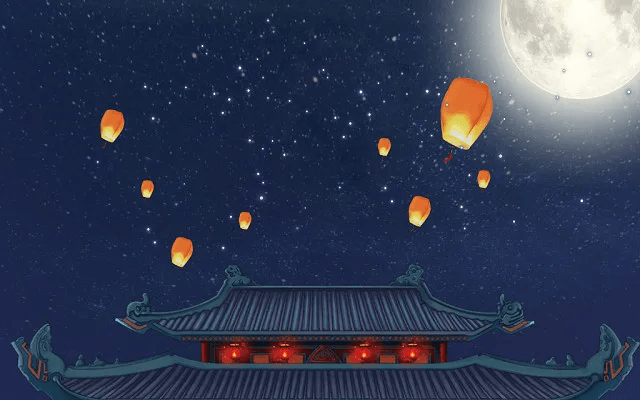The Ghost Month is the seventh lunar month of Chinese Lunar Calendar. The 15th lunar day of the 7th lunar month is the Chinese Ghost Festival. The Chinese formal name of the Ghost Festival is Chung-Yuan 中元. The first lunar day of the 7th lunar month is on July 29, 2022. August 12, 2022, is the 15th lunar day, which is the Chinese Ghost Festival. The first lunar day of the 8th lunar month is on August 27, 2022. Therefore, the Ghost Month is from July 29 to August 26 in the China time zone.
The Hungry Ghost Festival, or the Chinese Ghost Festival, is celebrated as both a Taoist holiday and a Buddhist Chinese festival. Its Taoist origin focuses on placating the spirits that escape from the ghost gate. As a Taoism holiday, its objective is to restore peace and balance. As for Chinese Buddhists, it’s mainly regarding filial piety.
No one can pinpoint the origins of the Hungry Ghost Festival, but it is heavily influenced by one of the oldest religions: Buddhism. In Singapore, the Hungry Ghost Festival was already being celebrated as early as the 1800s.
People at home prepare lots of food to worship gods and pray for their spirits of ancestors, and then treat the homeless ghosts. Some cities will spend weeks building a multi-story sacrificial altar. The Taoists will fast and take a bath, wear formal dress and perform the religious ceremony to pray for good luck for spirits on Chung-Yuan Day. The lighting decoration of the altar at night is the entertainment for ghosts.
Held during the 15th night of the seventh lunar month of the year in the Chinese calendar, the Hungry Ghost Festival is a Buddhist and Taoist celebration used to pay tribute to the departed. To ease the suffering of the dead (and to make sure that hungry spirits don’t make any trouble), celebrants offer up ritualistic foods, money, and entertainment all month long. Whether you’re looking for ways to celebrate the Hungry Ghost Festival with your own family or just hoping to understand more about the annual celebration, here’s everything you should know about the Hungry Ghost Festivities.
During this time (which kicks off in mid-July or August), Chinese communities perform rituals oriented to their ancestors. “These rituals and ceremonies are often facilitated by Buddhist monks or Daoist priests to release the ‘ghosts’ of their ancestors from the suffering in hells and feed them with the symbolic food of compassion. And it’s not just celebrated in China, either — the Hungry Ghost Festival is also commonly observed in Singapore, Malaysia, Taiwan, Hong Kong, Indonesia, Japan, and Vietnam, among other places.
Living relatives believe it is their filial duty to ensure their departed relatives have a comfortable life in the next world. To that end, each family will purchase and burn paper offerings. The hope is that these will find their way to the departed family members. Open grassy patches beneath apartment blocks, public corridors, sometimes even street pavements in the town areas, are considered suitable places to do this.

The Basics
Though the Hungry Ghost Festival gets some acclaim as the “Chinese Halloween,” the holiday actually offers a great opportunity to teach kids about caring for the destitute and less fortunate. During the duration of Ghost Month, hungry spirits roam the earth in search of mischief and worldly pleasure. To ease their suffering, the living observe superstitions and make offerings of food, money and entertainment all month long, culminating with an outdoor ghost-feeding ceremony on the night of the Hungry Ghost Festival.
History & Folklore
The Hungry Ghost Festival is a time when restless ghosts rise, when makeshift roadside altars glow with burning joss paper and when the living do everything they can to appease the wandering spirits. It’s one of the two big annual festivals designated for the dead — the other is the Qingming Festival in the spring.
Activity
Ghosts, goblins, ghost stories and incense make Mid-Autumn Festival fun to share with your kids. This is a month-long opportunity to follow old superstitions, tell ghost stories, reinforce the importance of family, and the need to care for the poor. The climax of the ghost month is the ghost feeding ceremony held on the night of the Chung Yuan Festival, which is filled with fire, smoke and offerings.
Handicrafts
Handicrafts can be used during the Chinese New Year Festival to introduce the meaning of ritual paper offerings, in the form of paper money ingots and floating lamps. Incense papers are burned to appease wandering souls, while floating lanterns light the way home at the end of the holiday.


Hi, this is a comment.
To get started with moderating, editing, and deleting comments, please visit the Comments screen in the dashboard.
Commenter avatars come from Gravatar.